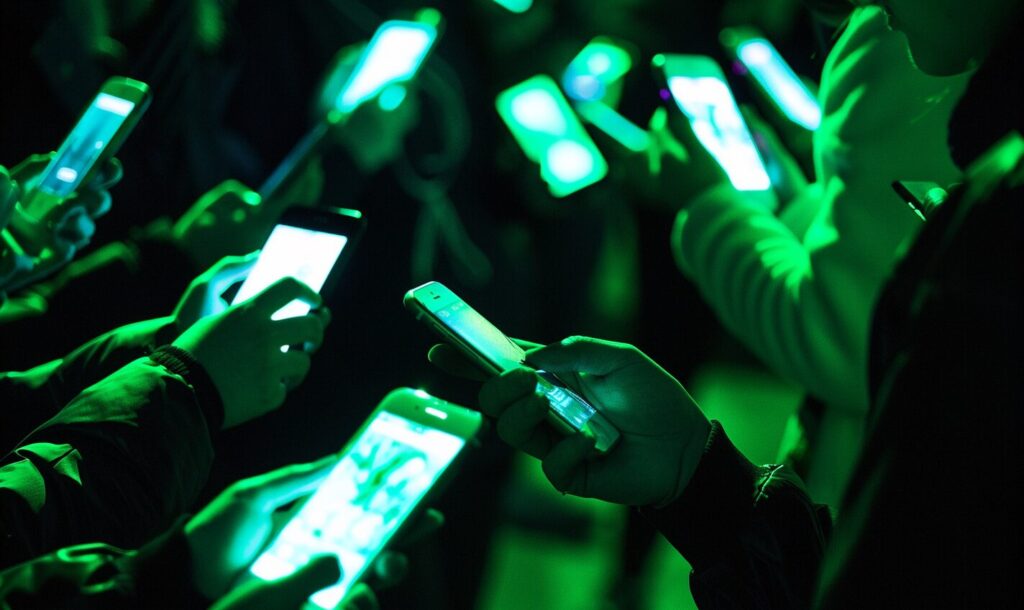There seem to be only a few people on Earth who don’t have a hard time waking up in the morning. For most of us, though, the buzz of our alarm clocks is an unwelcome sound. It’s certainly natural to feel unhappy or groggy when the bell tolls in the morning, but eventually you roll over and land on your feet … right?
If not, there could be an underlying reason why you struggle so much with getting out of bed. Here are four of the biggest contributors to your inability to start your day, but don’t worry – we’ve given you solutions to each one in order to make mornings a little bit easier.
PROBLEM: You’re Still Growing
Teenagers are notorious for sleeping in, and they’ve got good reason to: Their bodies require up to an average of 9.5 hours of sleep per night in order to feel fully rested.
There are, of course, a few problems that stem from such a long sleep cycle. For one, most teens and college-age kids have trouble falling asleep before the early-morning hours – around 1 or 2 a.m. On top of that, they have to wake up early to get to class. In the end, they’re sleep-deprived and way more inclined to stay in bed than get going.
SOLUTION: Sleep-Train to Start Catching Zs Sooner
You or your child are no longer babies, but sleep training is still a way to fix these late-night bedtimes. Try pushing your bedtime to an earlier hour by 15 minutes per night, every night for a week, and wake up 15 minutes earlier, too. Eventually, your body should get into the rhythm of sleeping and waking up on an earlier cycle, no matter how much sleep you need to log each night.
PROBLEM: You Overpress Snooze
We all have our days where we just need to press the snooze button, and that’s perfectly fine. However, regularly doing so can really mess with your ability to get going in the morning.
That’s because most snooze cycles are just long enough for your body to slip back into a deep sleep, often even deeper than the sleep you were experiencing pre-alarm. That is why you find it so much harder to wake up on days when you let yourself sleep in … and in … and in.
SOLUTION: Wake up Later – With One Alarm
A full 35% of adults report sleeping less than seven hours per night, but most people need between seven and nine hours to feel rested. What’s the absolute latest time you can wake up in order to get ready and out of the door on time? That’s the time at which you should set your alarm. That way, you know you have to get out of bed as soon as you hear it. No snoozing, no slipping back into deep sleep and no starting your day as the groggiest, most tired version of yourself.
PROBLEM: You Sleepwalk
Sleepwalking seems like something of sitcom fodder – until it happens to you or someone you love. In real life, it’s a terrifying habit: Someone performs complex activities despite not being fully awake. It’s a trend that can start at any age, too.
There’s no real explanation as to why one sleepwalks or who’s susceptible to forming the habit, although it does tend to run in families. If you have night terrors – nighttime visions that are worse than your average nightmare – you are more likely to suffer from sleepwalking as well. Either way, it’s clear to see why both of these tendencies can disturb one’s sleep and make for a tired morning.
SOLUTION: Ease Into a Restful Night’s Sleep
There’s no tried-and-true solution for sleepwalking, but many have found that a solid nighttime routine is key in preventing sleepwalking incidents. You’ll want to cut out caffeine a few hours before you hit the hay, and you’ll also want to partake in relaxing activities, like taking a bath or reading a book. Find the right combination for you and ease yourself into restful, interruption-free sleep.
PROBLEM: It’s Dark Outside
Daylight savings time doesn’t kick in until March, which means we’re stuck with short days in the winter. Not only does that have the sun setting early, but it also gives the sun more time to make its way up in the morning. In other words, we often wake up in the dark in winter.
Our bodies simply aren’t wired to wake up until it’s light. You’ve probably experienced this on a weekend morning when you wanted to sleep in but forgot to draw the curtains. Darkness has the opposite effect, so an early-morning winter wakeup is bound to be tough for just about anyone.
SOLUTION: Let the Light In
Obviously, you cannot will the sun to rise with you. However, you can invest in a gadget like a wake-up light to simulate a sunrise in your bedroom, helping your body to wake up more naturally. Others have done so and have lauded the contraption’s effectiveness. If you can’t buy one right away, turn a softer bulb on as soon as you wake up so you see light and know it’s time to get going.
Of course, these aren’t the only reasons that it’s tough to wake up in the morning, but they’re some of the most common. With a few simple swaps to your nighttime or morning routine, though, you could be well on your way to experiencing better sleep, better wakeups and better days.
Recent Stories
Follow Us On
Get the latest tech stories and news in seconds!
Sign up for our newsletter below to receive updates about technology trends














